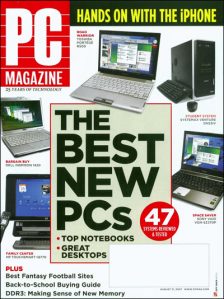 I’ve been writing professionally in one form or another since 1987, and in all that time one of my biggest challenges has been getting comfortable with the idea of shameless self promotion.
I’ve been writing professionally in one form or another since 1987, and in all that time one of my biggest challenges has been getting comfortable with the idea of shameless self promotion.
Don’t get me wrong–today, I love it more than coffee. But in the early days of my writing career I wasn’t confident in my skills, and as a result I always felt like I was selling snake oil to people. The lack of confidence made me feel like I was getting away with something every time I landed a gig or got praise for something I worked on.
And that is a key issue in successful personal PR as a freelancer–believing in yourself enough to sell what you’re doing. I believe many people can detect that self-doubt even in the strongest of queries, sales pitches, etc. It’s almost as if they can smell the desperation coming through in the e-mails, the phone calls, and face-to-face meetings.
Is confidence in your own abilities what makes the sale?
I believe there’s no substitute for a well-written query, cover letter or resume…but I also think those are TOOLS, not the end itself. The query letter is just a sales pitch, after all. Ditto for the resume or proposal. What are these tools supposed to do? Sell YOU.
If confidence is the key, what does it take to get it? So many freelancers are afraid of making mistakes, of sending the wrong thing to the wrong people. I’ve been advising people to stop fussing so much over these issues and just get out there and DO IT. When I was a noob freelancer, I actually copied the format and presentation of successful query letters, not realizing that I would actually sell my ideas better in my own voice.
Today I’d rather shoot myself than copy someone else’s approach–but only because I’ve learned through trial and error that when I do things my own way, my confidence in my approach seems to be far more obvious. And I think in the end, that helps close the deal. Continue reading All About ME–Shameless Self Promotion and the Freelancer






